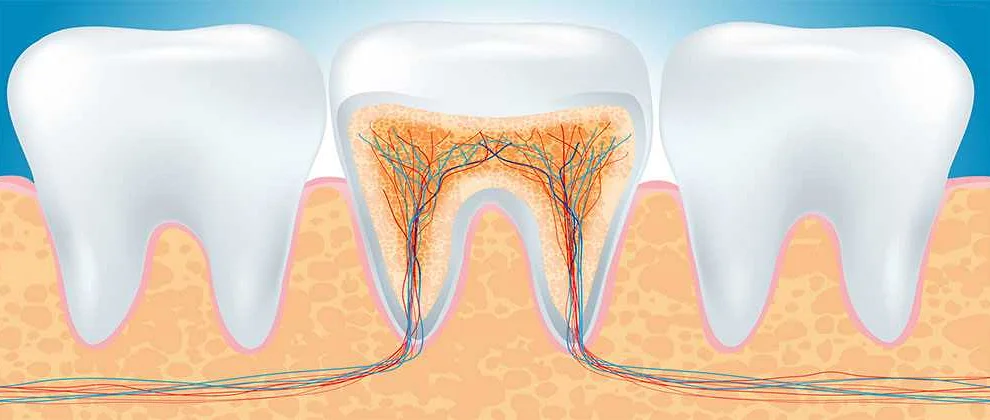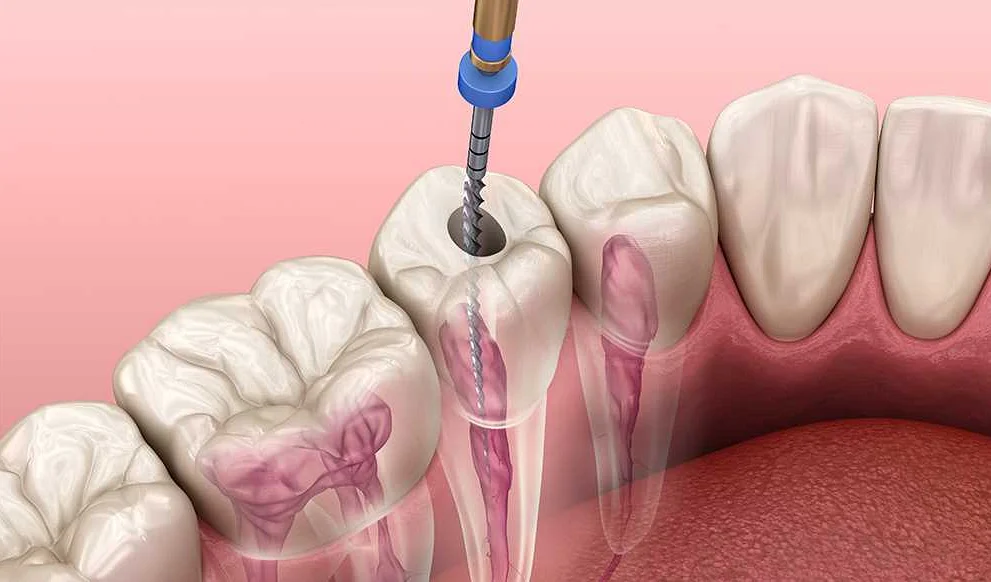Why Does a Tooth with a Removed Nerve Hurt and What to Do About It?
Содержимое
Learn why a tooth with a removed nerve can still cause pain and discover effective solutions for relief. Find out what to do if you experience discomfort after a root canal or tooth extraction.
Having a tooth with a removed nerve can be a frustrating and uncomfortable experience. You may wonder why a tooth that no longer has a nerve can still cause pain. This phenomenon can occur due to several factors, including inflammation, infection, or even residual nerve tissue.
When a tooth undergoes a root canal treatment, the nerve and blood vessels within the tooth are removed. However, the surrounding tissues can still become inflamed and irritated, leading to pain and discomfort. In some cases, an infection may develop in the tooth or the surrounding gum tissue, causing further pain and swelling.
Another possible reason why a tooth with a removed nerve may hurt is the presence of residual nerve tissue. Although the main nerve is removed during the root canal procedure, small branches of nerves may still remain in the tooth. These tiny nerve endings can be sensitive and cause pain, especially if they become exposed or irritated.
To alleviate the pain associated with a tooth that has had its nerve removed, there are several steps you can take. First and foremost, it is important to visit your dentist to determine the cause of the pain and receive appropriate treatment. Your dentist may prescribe antibiotics to treat any infection present or recommend additional procedures to address the inflammation or residual nerve tissue.
In addition, over-the-counter pain relievers can help alleviate the discomfort temporarily. You can also try rinsing your mouth with warm saltwater to reduce inflammation and soothe the affected area. Avoiding hot or cold foods and drinks, as well as hard or crunchy foods, can also help minimize pain and sensitivity.
If the pain persists or worsens, it is crucial to seek professional dental care. Remember that a tooth with a removed nerve still requires proper care and attention to maintain oral health and prevent further complications.
Causes of Pain After Nerve Removal
When a tooth nerve is removed, the pain should generally subside as the source of the problem has been eliminated. However, in some cases, patients may still experience pain or discomfort after the procedure. There are several possible causes for this lingering pain, including:
1. Infection: Although the tooth nerve has been removed, bacteria can still exist in the area. If the tooth was infected prior to the nerve removal, the infection can persist and cause pain. Antibiotics may be necessary to treat the infection.
2. Incomplete removal: If the entire nerve is not completely removed during the procedure, it can lead to continued pain and discomfort. A follow-up appointment may be necessary to remove any remaining nerve tissue.
3. Root fracture: During the nerve removal procedure, the root of the tooth can become weakened or fractured. This can result in pain and may require additional treatment, such as a root canal or extraction.
4. Referred pain: Pain can sometimes be perceived in a different location than its actual source. After a nerve removal, it is possible for pain to be felt in surrounding teeth or even in the jaw joint. This is known as referred pain.
5. Nerve damage: While rare, it is possible for the dental nerve to sustain damage during the removal process. This can lead to persistent pain and may require further intervention to address the issue.
If you continue to experience pain after a tooth nerve removal, it is important to consult with your dentist. They will be able to evaluate your symptoms and determine the cause of the pain, providing the appropriate treatment to alleviate your discomfort.
Possible Complications
While removing the nerve of a tooth can provide relief from pain and prevent further damage, there are some potential complications that can arise. It’s important to be aware of these complications and seek prompt dental care if they occur.
Infection: After a root canal procedure, there is a risk of infection. This can happen if bacteria enter the tooth through a crack or cavity and spread to the surrounding tissues. Symptoms of an infection may include severe pain, swelling, and the presence of pus. Prompt treatment with antibiotics and possible additional dental procedures may be necessary to address the infection.
Failure to fully remove the nerve: In some cases, the dentist may not be able to completely remove the nerve during the root canal procedure. This can lead to persistent or recurring pain. If this occurs, further treatment such as retreatment or an apicoectomy (surgical removal of the tip of the tooth root) may be necessary.
Damage to surrounding structures: During the root canal procedure, there is a small risk of damage to the surrounding structures, such as the nearby teeth or the jawbone. This can lead to additional complications and may require further dental interventions to address.
Fracture or breakage of the tooth: In rare cases, a tooth that has undergone a root canal procedure may become weakened and susceptible to fracture or breakage. This can happen if the tooth is already compromised or if excessive force is applied to the tooth. If a tooth does break, it may require extraction and replacement with a dental implant or bridge.
Delayed healing: It’s normal to experience some discomfort and sensitivity after a root canal procedure. However, if the pain persists or worsens over time, it may indicate a problem with the healing process. Delayed healing can occur due to various reasons, such as an underlying infection or an improper seal of the tooth. It’s important to consult with a dentist if you experience prolonged or worsening pain after a root canal.
Allergic reactions: Although rare, some individuals may experience an allergic reaction to the materials used during a root canal procedure, such as the local anesthesia or the filling material. Symptoms of an allergic reaction can include swelling, difficulty breathing, and rash. If you suspect an allergic reaction, seek immediate medical attention.
If you experience any of these complications or have concerns about your root canal procedure, it’s important to contact your dentist for an evaluation. They will be able to provide the appropriate treatment and address any issues that arise.
Proper Care for a Tooth with a Removed Nerve

After a dental procedure that involves the removal of a tooth nerve, it is important to follow proper care practices to alleviate pain and promote healing. Here are some tips to take care of a tooth with a removed nerve:
- Take prescribed medications: Your dentist may prescribe painkillers or antibiotics to manage pain and prevent infection. It is essential to follow the prescribed dosage and complete the course of medication.
- Maintain oral hygiene: Brush your teeth gently twice a day with a soft-bristled toothbrush. Use a fluoride toothpaste to help prevent tooth decay and strengthen the tooth enamel. Don’t forget to floss daily to remove plaque and food particles from between the teeth.
- Avoid hot and cold foods: Sensitivity to temperature changes is common after a tooth nerve removal. Avoid consuming extremely hot or cold foods and beverages to prevent discomfort and sensitivity.
- Stick to a soft diet: For the first few days after the procedure, consume soft foods that don’t require much chewing. Soups, smoothies, yogurt, and mashed potatoes are good options. Avoid hard, crunchy, or sticky foods that could irritate the healing area.
- Limit alcohol and tobacco use: Smoking and excessive alcohol consumption can delay healing and increase the risk of complications. It is best to avoid these habits during the recovery period.
- Avoid strenuous activities: Engaging in strenuous activities or exercises can lead to increased blood flow to the affected area, causing pain and swelling. It is important to take it easy and avoid any activities that could strain the jaw or mouth.
- Attend follow-up appointments: Follow all instructions given by your dentist and schedule any recommended follow-up appointments. Regular check-ups will allow your dentist to monitor the healing process and address any concerns.
- Contact your dentist if there are issues: If you experience severe pain, excessive bleeding, swelling, or any other concerning symptoms, contact your dentist immediately. They will be able to provide appropriate advice or make any necessary adjustments to your treatment plan.
By following these proper care practices, you can help alleviate pain and promote healing after a tooth nerve removal procedure. Remember to consult with your dentist for personalized advice and guidance based on your specific situation.
Home Remedies to Relieve the Pain

If you are experiencing pain after having a tooth nerve removed, there are several home remedies that can help alleviate the discomfort:
| Saltwater rinse: Mix half a teaspoon of salt in eight ounces of warm water. Rinse your mouth with this solution for 30 seconds, then spit it out. Repeat this process a few times a day to help reduce inflammation and ease the pain. |
| Cold compress: Applying a cold compress to the affected area can help numb the pain and reduce swelling. Wrap an ice pack or a bag of frozen vegetables in a thin cloth and apply it to the outside of your cheek for 15 minutes at a time. |
| Clove oil: Clove oil has natural analgesic and anti-inflammatory properties. Apply a small amount of clove oil to a cotton ball and gently dab it on the affected area. Leave it on for a few minutes, then rinse your mouth with warm water. Repeat this remedy a few times a day as needed. |
| Over-the-counter pain relievers: Nonsteroidal anti-inflammatory drugs (NSAIDs), such as ibuprofen, can help reduce pain and inflammation. Follow the instructions on the packaging for proper dosage and consult with your dentist or healthcare provider if you have any existing medical conditions or are taking other medications. |
| Sleep with your head elevated: When lying down, prop yourself up with pillows to keep your head elevated. This can help reduce blood flow to the affected tooth and alleviate pain. |
While these home remedies can provide temporary relief, it is important to remember that they are not a substitute for professional dental care. If the pain persists or worsens, it is recommended to seek the advice of a dentist.